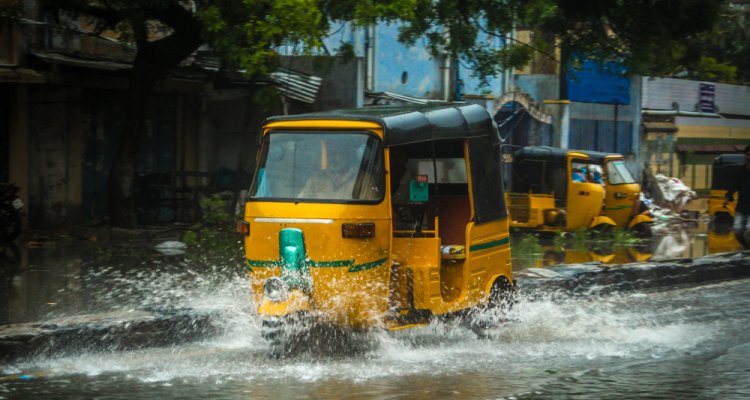
News
Grant award Lodestar for early warning of water disasters
NWO's Merian Fund India has awarded €1.75 million for the research initiative Lodestar (Low-cost Disaster & Emergency Services for Communities at Risk). Professor Anamika Barua is leading the project from India and Jeroen Warner is taking the lead from Wageningen, together with Sumit Vij. Warner is pleased with the award and explains what they plan to do with it.
In the project, WUR's Sociology of Development and Change (SDC) and Water Systems and Global Change Group are collaborating with MetaMeta, Indian Institute of Technology, Guwahati, and other Indian institutions. “We want to set up a participatory early warning system for water-related disasters in urban areas,” says Warner. “For example floods or long periods of drought.”
Warner refers to the recent high water in Deventer, and earlier in Maastricht. “And in May last year, we struggled with prolonged drought. Governments are starting to realise they have to take this into account, for instance in building projects. The Dutch cities Dordrecht and Breda are participating in the project. In India, bigger cities such as Bangalore and Guwahati are involved, with bigger problems.”
Interdisciplinary cooperation
Special about the project is that the researchers use not only technical, but also social techniques. “Citizens often have a lot of knowledge and can see a drought or flood coming. In workshops with citizens, consultants, universities and city governments, we want to develop a better early warning system. The result is a special tool, a dashboard that can show, for example, that floods and droughts are coming. This way, cities are prepared and can take measures.”
Together, the different stakeholders are developing innovative solutions to better protect communities in high-risk areas. “It is special that Prof Barua and I, as social scientists, are leading this project. Natural scientists at WSG help us, and it is nice to see that we are increasingly successful in interdisciplinary cooperation. The high interdisciplinary nature of our project certainly played a part in getting the grant.”
Open-source tool
The grant of the Merian Fund is an important step in promoting resilience and reducing the impact of disasters. “The developed tool has to be user-friendly, so that people can use it themselves. It is open source and we want to make it available to society. After the three year project, Indian cities will hopefully take in the research forward. In the Netherlands, much information is already available, for example via Deltares, but we are not yet very good at involving citizens in a risk inventory, let alone risk communication. Dordrecht and Breda are leading the way here. Hopefully, after that, more cities and governments will be interested in the tool.”